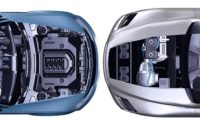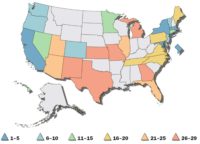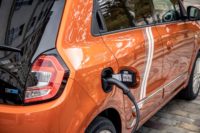MUNICH—Roland Berger Strategy Consultants GmbH recently released its “E-Mobility Index 2021,” which examines the state of the electric vehicle industry. According to the report, which was developed with fka GmbH Aachen, China and Europe are leading the race to electrify the auto industry.
Producing the largest number of electric vehicles and battery cells, China leads in the overall and the industry ranking of the "E-Mobility Index 2021." In the market category, Germany climbed from fifth place to the top spot, due to a huge increase in sales of electric vehicles. South Korea takes over the lead in terms of technology, because of constantly improving vehicle performance.
"The trend toward e-mobility has once again gained significant momentum in recent months,” says Wolfgang Bernhart, a partner at Roland Berger. “While overall sales in the automotive industry are down because of the coronavirus pandemic, e-mobility is on the rise globally.
“Momentum will remain high because the industry has recognized the need to adapt and accelerate the transition,” explains Bernhart. “In 2021 and 2022 alone, more than 20 new electric models from German, U.S. and Chinese manufacturers each are expected to hit the market."
Germany ranks first in the market category, ahead of France and China. Almost 400,000 electric vehicles were sold in Germany last year, representing an increase of over 250 percent. In terms of units sold, this means that Germany is now the second largest market for EVs in the world, behind China. The share of electric vehicles in Germany’s overall market rose to 13 percent, with government subsidies in the form of purchase premiums supporting the upward trend.
In France, where the electric car share is 10 percent, as well as in Italy and South Korea, the sales figures for electric vehicles also rose significantly. Italy demonstrated the best progress in terms of fully electric vehicle market share, which is up 376 percent.
"The upward trend in Europe, helped by government subsidies, indicates that the gap with China can narrow in the long term," says Alexander Busse, senior consultant at fka GmbH Aachen.
In terms of units produced, China continues to dominate both electric vehicles and battery cells. According to the study, worldwide production of fully electric vehicles and plug-in hybrids will increase by 13 percent in the period from 2018 to 2023, compared to the previous period. China is also stepping up production activities in the field of batteries, In fact, domestic cell production capacity created in this time period is expected to account for more than 70 percent of global capacity.
"China is well ahead in cell production, yet Europe is on the right path,” claims Bernhart. “But, the backlog in cell production can only be reduced with high investment and continuous optimization of technology, such as cell chemistry.”
When it comes to technology, Bernhart says South Korea is No. 1. “Overall, the average vehicle performance has improved and yet they still offer a very good price-performance ratio,” he points out. “South Korean OEMs continue to enhance the technology in existing models, rather than introducing new models.”
However, in the other markets, manufacturers are increasingly focusing on the production of new fully electric vehicles. In 2021 and 2022, automakers in Germany, the U.S. and China each plan to launch more than 20 new electric models.



